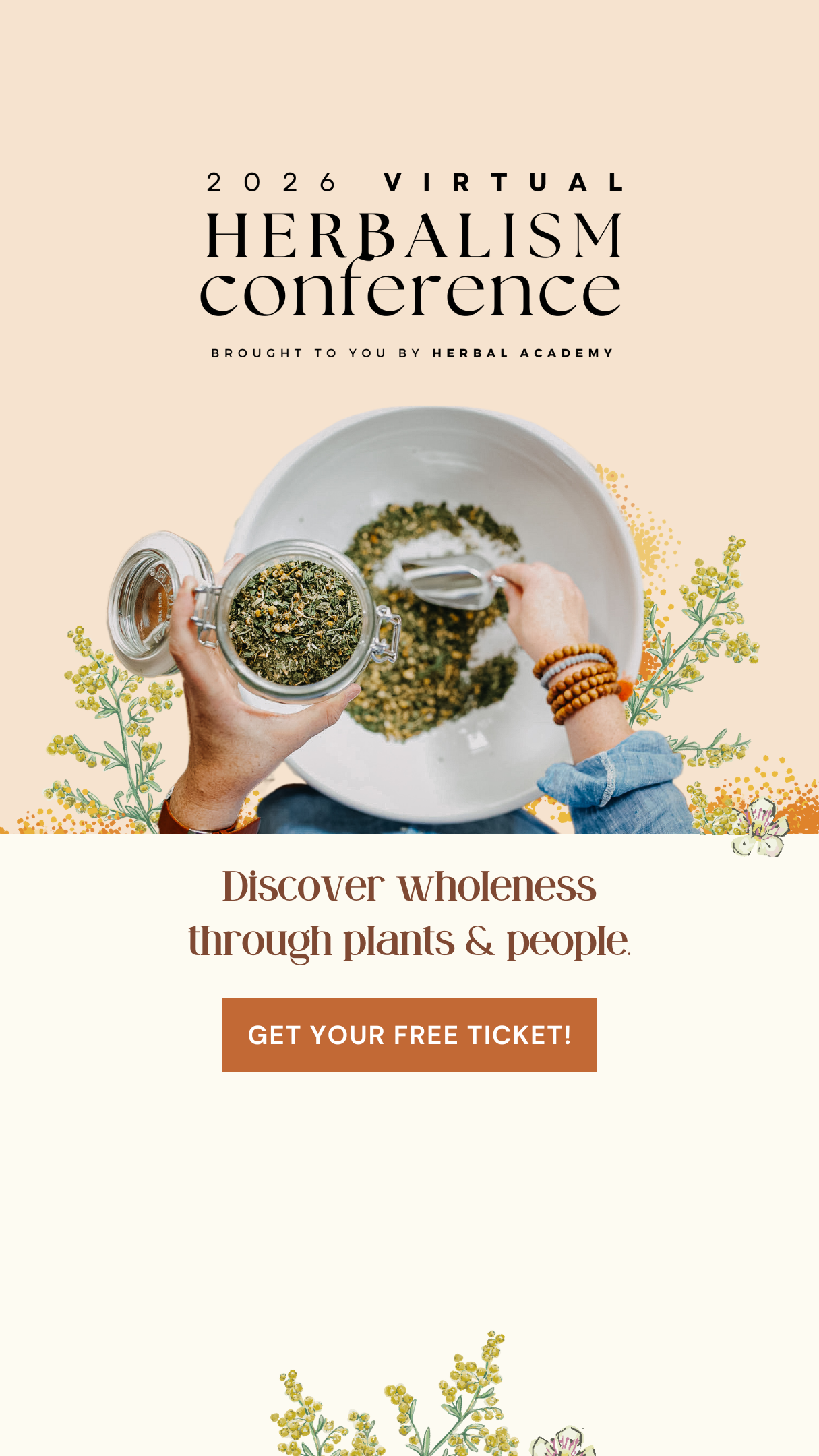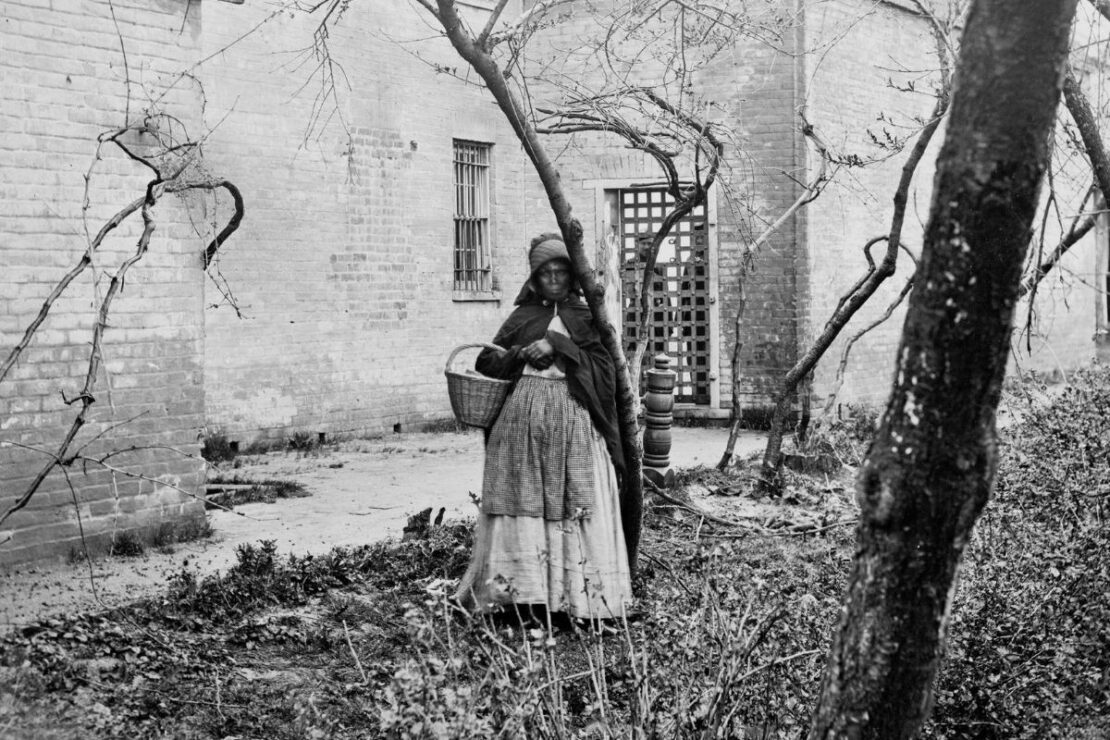
Roots of African American Herbalism: Herbal Use by Enslaved Africans
This article cannot possibly cover more than 400 years of herbal use and knowledge by enslaved Africans and their descendants. This is just the beginning of my journey as a Black herbalist understanding my own history, the plant knowledge contained within it, and my ancestral connections to herbalism. This post skims the surface of the exploration and reclamation work that needs to be done by the herbal community to decolonize itself and help honor the traditions, knowledge, and stories of African American herbalism.
Plants brought more than healing to enslaved Africans; they brought light, flavor, connection, remembrance, and joy into the otherwise dire and cruel living conditions experienced under slavery and subsequent economic and social oppression. Herbalism was a daily practice of empowerment and healing for men and women alike because there were very few other options for healing.
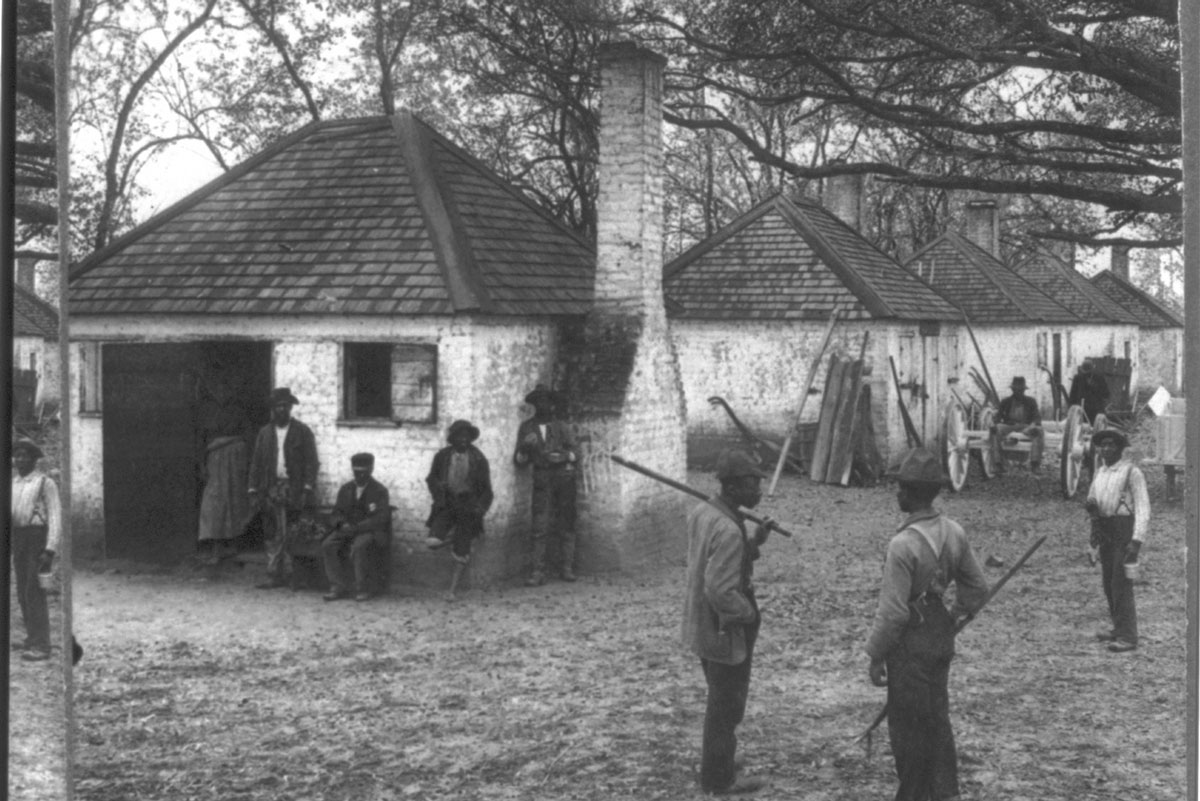
According to Sade Muse of Roots of Resistance, African American herbalism is a rich melange of many cultural traditions with deep origins rooted in African history dating back to ancient Egypt. It includes Arab and Asian practices that crossed paths due to trade and cultural exchange on the African continent. As enslaved African people crossed the Atlantic with the transatlantic slave trade, their herbal knowledge and practices were influenced—as well as appropriated by—European slavers.
Leah Penniman of Soul Fire Farm and the author of Farming While Black has noted that enslaved Africans were often selected for their agricultural expertise because Europeans were not used to farming in the warmer climates of the Caribbean islands and the southern United States (Penniman, 2018). In this way, their knowledge of plants —as well as their forced labor— made them vital to the success of the colonies.
After arriving in the Americas, cohabitation and collaboration with Indigenous Americans meant that enslaved Africans were then introduced to knowledge of local plants and their medicinal ways. Therefore, African American herbalism is a hybrid of all the knowledge that enslaved Africans came into contact with leading up to and throughout their enslavement.
Early African American herbalism was based on a relationship and connection to the land. Enslaved Africans brought the seeds of their homelands braided into their hair and the knowledge of medicinal plants in their stories and songs (Penniman, 2020). However, much of the herbal knowledge gained in America came from direct connection, necessary learning, and the use of plants foraged in the woods, forests, and wetlands that provided a refuge from enslavement on plantations. For enslaved Africans and their descendants, herbalism and spiritual nourishment were intertwined. Plants supported their endurance and resilience in the face of enslavement.
Appropriation and Decolonization of African American Herbalism
As herbalism gains popularity—and peoples’ awareness of systemic racism also grows—we need to investigate the intersection of herbalism and systemic racism. To truly honor the African American roots of modern Western herbalism, a vitally important aspect of healing work is to recognize the Eurocentric views and cultural appropriation that modern herbalism has participated in.
The European colonists observed the herbs and plants used by enslaved Africans who sought more regular contact with Indigenous communities when their medicines weren’t working. There was a complex relationship between colonizers and the enslaved when the practice of herbalism was involved.
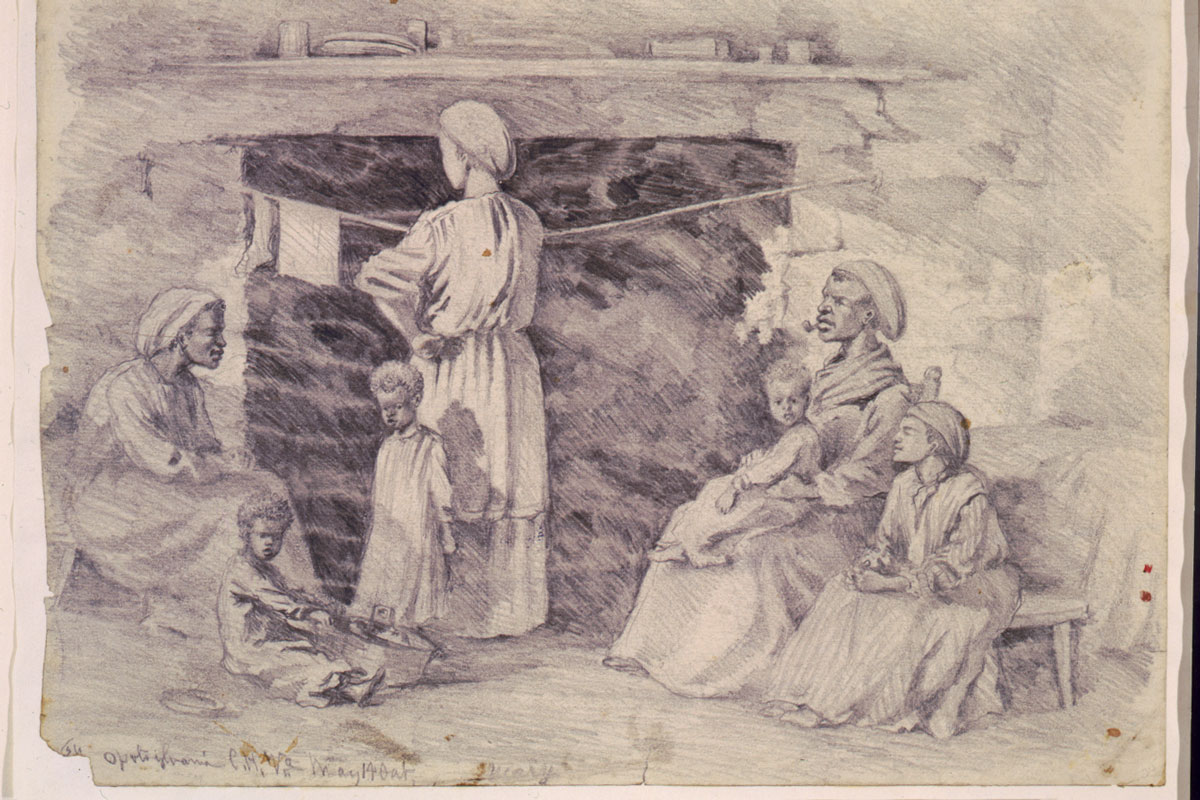
On one hand, colonizers wanted enslaved Africans’ healing knowledge, especially when their own remedies were not working or European medicine was too expensive to import. On the other hand, European colonizers also feared African “root medicines” and did not want enslaved people to be empowered in any way. For enslaved Africans, herbal knowledge was a tool for liberation and spiritual, emotional, and physical health. Highly sought-after herbal supports could even be used as bargaining tools for freedom.
European colonizers feared poisonings and uprisings, but also needed the herbalism of the peoples they oppressed, though many forbade the practice of herbalism. As Leah Penniman (2018) explains:
By the mid 18th century, both Virginia and South Carolina made it a capital offense for enslaved people to teach or learn about herbal medicine and prohibited us from working in apothecaries. Further, European Americans borrowed from African medicinal knowledge, then erased the stories of the originators over time. For example, in the 1863 edition of Resources of the Southern Fields and Forests, the entry on boneset (Eupatorium perfoliatum) includes, ‘this plant is extensively employed among the negroes on the plantations in South Carolina as a tonic and diaphoretic on colds and fevers, and in typhoid pneumonia so prevalent among them.’ By the time the Peterson Field Guide was published in 1990, boneset was merely described as a ‘common home remedy of 19th century America, extensively employed by American Indians and early settlers.’ The Black herbalists were erased. (p.190)
Many Black, Indigenous, People Of Color (BIPOC) have been robbed systematically of their connection and access to the land—and to herbalism—because it was stigmatized and made unsafe for them to practice. This robbed them of the knowledge of their ancestral herbals, folkways, and rich traditions. Today, because of systemic racism and historic erasure, modern African Americans have been cut off even further from the very practices, foodways, and knowledge that helped their ancestors survive and build resiliency during enslavement.
It is important to recognize the appropriation of Native, Indigenous and African medicine in Western herbalism. As we become more aware of the systemic oppression of black bodies in this country—and the appropriation of resources and labor—we learn to recognize the same threads through herbalism. We need to nurture this traditional herbal knowledge back to health. Decolonizing Western herbalism starts with asking hard questions.
Where has modern herbal knowledge come from?
What has been taken from African American herbalism without proper recognition?
Whose knowledge do we uphold?
Whose voices and stories do we listen to, record, and publish when it comes to our working relationship with plants?
Whose ancestral traditions and knowledge have been excluded from herbalism?
Sourcing Herbs
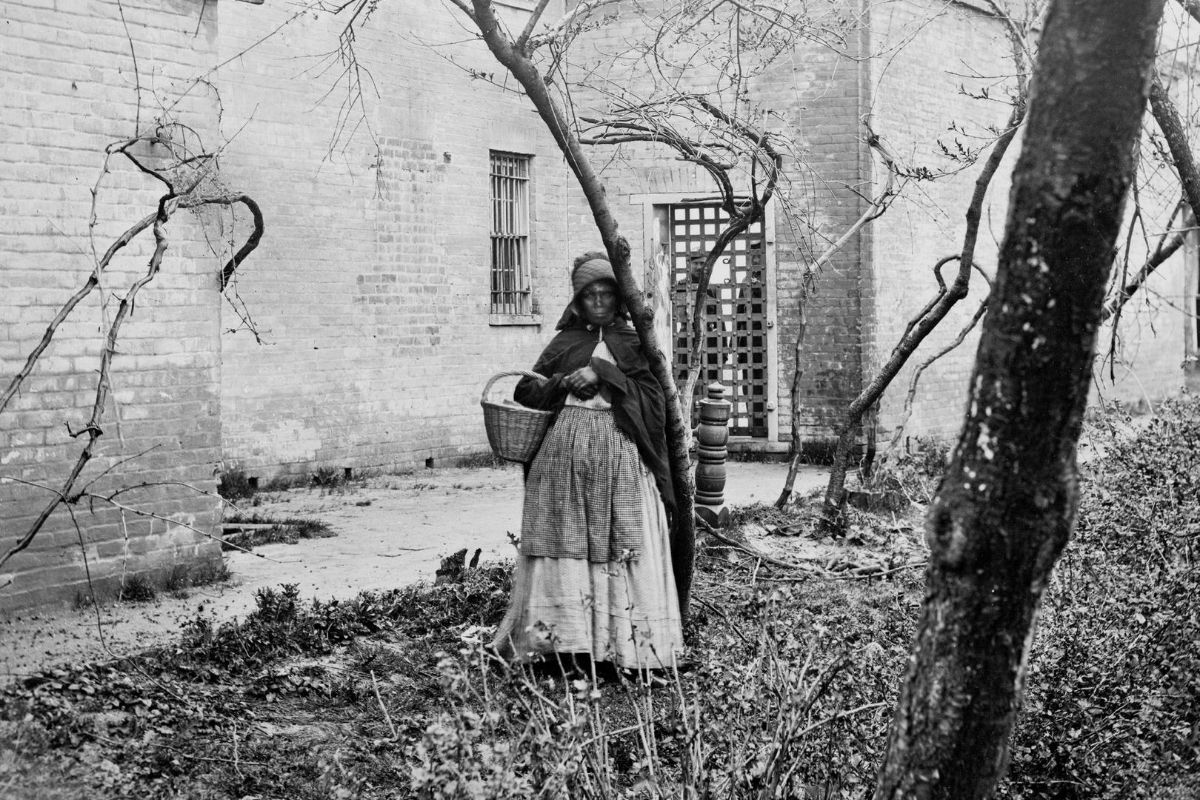
Enslaved Africans cultivated their own gardens and foraged locally, but they didn’t often use the plants grown on the plantation. African American herbalism was by its very nature what we now call “bioregional herbalism” because they had to use the plants that were immediately available around them.
Roots, bark, leaves, and berries were utilized at different stages. This implies that many enslaved Africans had complex herbal practices of identifying plants at different stages, knowing what was poisonous and what was not, and then choosing a few plants over many because they had knowledge of the exact function of that plant.
Enslaved Africans often chose foraged plants over cultivated ones as “cultivation, however, supplied only a small portion of the herbal repertoire of enslaved communities” (Fett, 2000, p. 122). Forests and wetlands proximal to plantations served as apothecaries to source plant allies as well as a place of solace. As shared by a former slave from Maryland,“The old people could read the woods just like a book, whenever you were sick they could go pick something out, and you’d get well.” (Fett, 2000, p. 122).
Everyone’s grandmother knew how to heal from the plants in their own backyards because access to healthcare was limited by structural racism. When food was scarce, weeds were food. Every neighborhood had a medicine woman, and Black folks entrusted their health not to the modern medical system but to plant medicine. Because it worked.
Methods and Techniques
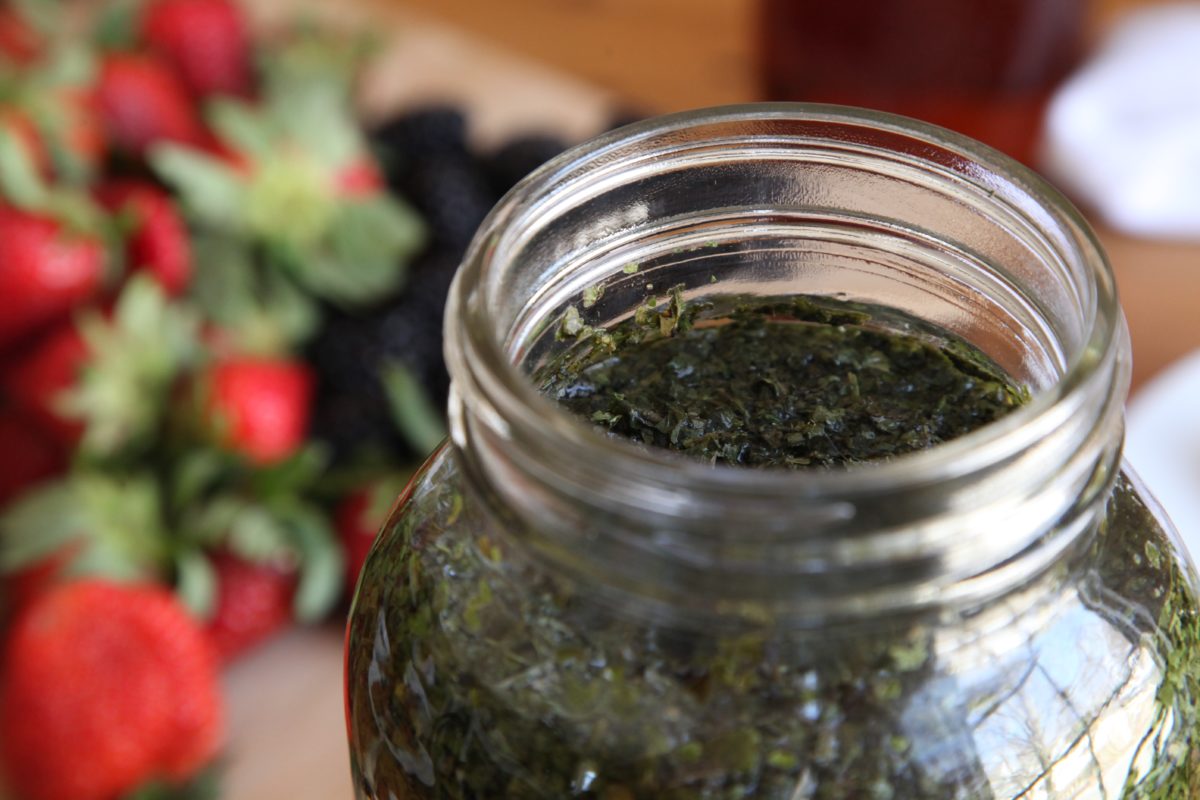
Historically, herbs were used and maximized in ways that were accessible to enslaved communities and later by African American communities with little economic access. Water infusions were the primary method used—either infusions for internal consumption or for external washes. Making decoctions and infusions was the easiest method to create herbal preparations for enslaved people. Poultices were another common application of herbs for external maladies.
Tinctures were rarely used because access to alcohol was limited and enslaved peoples were not given alcohol. After enslaved people were freed, it was still too expensive to make tinctures.
Plants of Historic African American Herbalism
Mullein (Verbascum thapsus) leaf, flower, and root
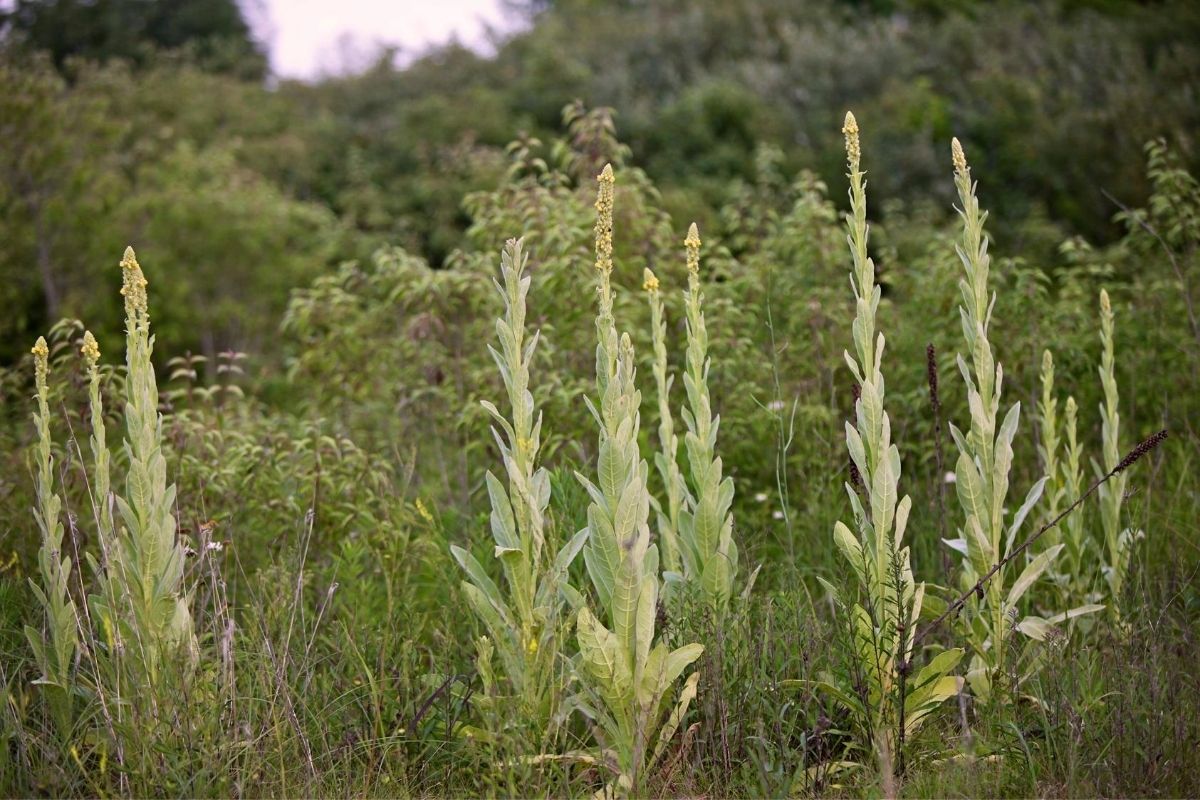
Mullein is native to northern Africa, Europe, central and west Asia. It’s now widely naturalized throughout temperate climates and grows invasively in disturbed soils and alongside roads, old fields, and pastures. Mullein was used widely in African American healing traditions and is rich in minerals, vitamins, and nutrients. Some of its wide array of uses included easing colds and respiratory conditions, such as coughs, congestion, whooping cough, and chronic bronchitis. Mullein was also used for its anti-inflammatory properties for arthritis and gout (Lee, 2017, p. 288)
The leaf was used in tea, in a bath or soak for joint pain, and as a poultice. As Dr. George Washington Carver (who is discussed further below) described, “I wish to say mullein is one of the oldest of our medicinal plants and is a noted remedy for all kinds of coughs and colds, rheumatic troubles, stopping of blood, asthmatic affections, and all manner of things that human ills are heir to. It is of unusual value along that line, one of the best known of household remedies. The flowers are especially valuable in aggravated cases of earaches” (Penniman, 2018, p. 194).
Cotton (Gossypium herbaceum) seed, bark, and root
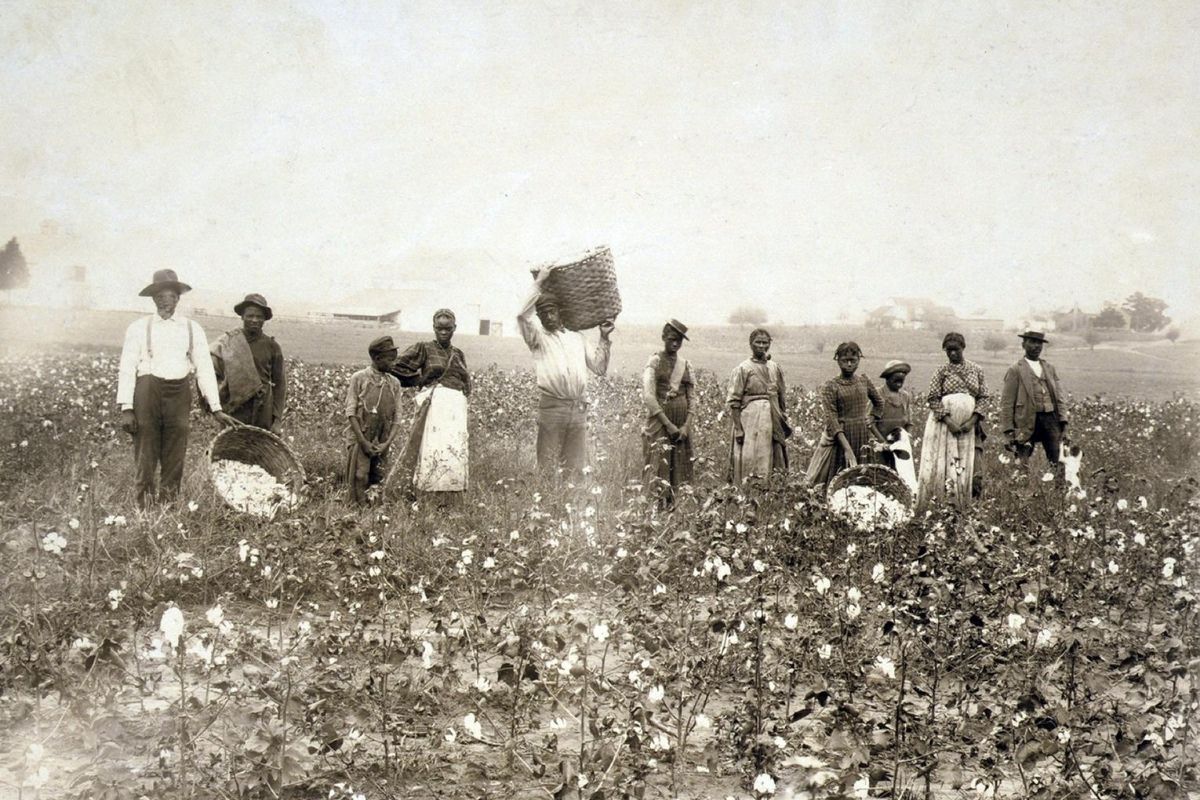
Cotton is native to tropical and subtropical regions around the world, including Africa, India, Asia, and Central and South America. Cotton herbalism has been used for centuries within Native American populations, as well as in African and Chinese medicine and Ayurveda.
Cotton seed, cotton bark, and cotton root have been historically used in women’s health and menstruation. Folk practitioners have historically made tea out of cotton roots to ease labor. The root, bark, and seeds also cause uterine contractions. Some enslaved people used cotton as an abortifacient through the induction of uterine contractions (Hamby, 2004, p. 59). Cotton was a plant they were familiar with from their homeland and were now forced to work in fields of it. With these actions, cotton became a plant that symbolized both oppression and empowerment.
Note: The Herbal Academy does not endorse or encourage the use of cotton seed, bark, or root as an abortifacient, for which it is very dangerous. This information is included solely for historical reference and context.
Sassafras (Sassafras albidum) leaf, twig, bark, and root
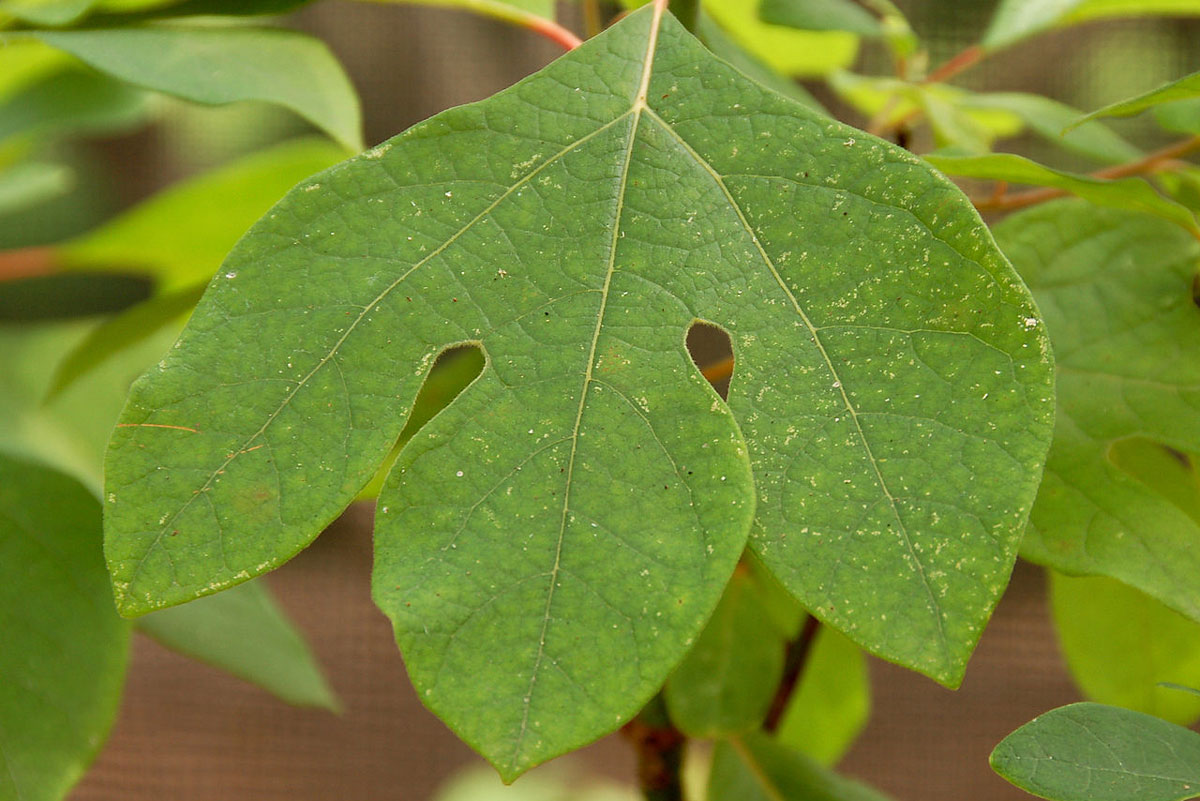
Native to eastern North America, sassafras root tea has a history of use as a seasonal blood cleanser. Sassafras is aromatic, stimulant, diaphoretic, and alterative. The leaves, twigs, bark, and roots can be decocted to regulate, purify, and balance the body. Sassafras compresses were used for external infections, burns, rashes, chronic rheumatism, and gout (Lee, 2017).
Basil (Ocimum spp.) leaf

Basil includes over sixty species native to Africa and Asia and is cultivated in many tropical and subtropical regions, such as the Meditteranean. Many types of basil were brought from Africa, including African blue basil (Ocimum kilimandscharicum), African basil (Ocimum viride), and tulsi basil (Ocimum tenuiflorum), and it was a sacred plant to enslaved Africans.
Basil has been historically used to reduce anxiety and stress, boost immunity, and soothe cold and flu symptoms. Basil can be used topically to soothe itching and pain due to insect bites. Basil was also used in a spiritual or energetic sense as herbal cleansing, burned to remove negative energy and protect a home (Penniman, 2018).
Wormwood (Artemisia absinthium) leaf and flowering tops

Wormwood is native to Southern and Eastern Africa (Penniman, 2018). Wormwood is a bitter, and a tea of wormwood was used to eliminate worms, which plagued many enslaved children as their living conditions often caused a spread of parasites. Topically, wormwood can repel insects due to its volatile oil content. It has a history of use in African American herbalism for anemia, and it helps with the absorption of nutrients (Penniman, 2018) as well as aids in digestion (Lee, 2017).
Historic African American Herbalists
Enslaved Africans and their descendants kept their ancestral herbal traditions alive at great risk. There are many forgotten bearers of this knowledge, but two rather well-known African Americans of history who helped keep herbal traditions alive were Harriet Tubman and George Washington Carver
Harriet Tubman (March 1822 – March 10, 1913) used herbalism, botany, and knowledge of the natural world around her to help others. Harriet and her passengers on the Underground Railroad used plants to calm babies and help them sleep for the journey. It is estimated that 300 people escaped slavery under Harriet’s passage. Her knowledge of plants used for food and medicine ensured the safe passage of many enslaved Africans and she aided both white and black soldiers wounded in the Civil War (Penniman, 2018).
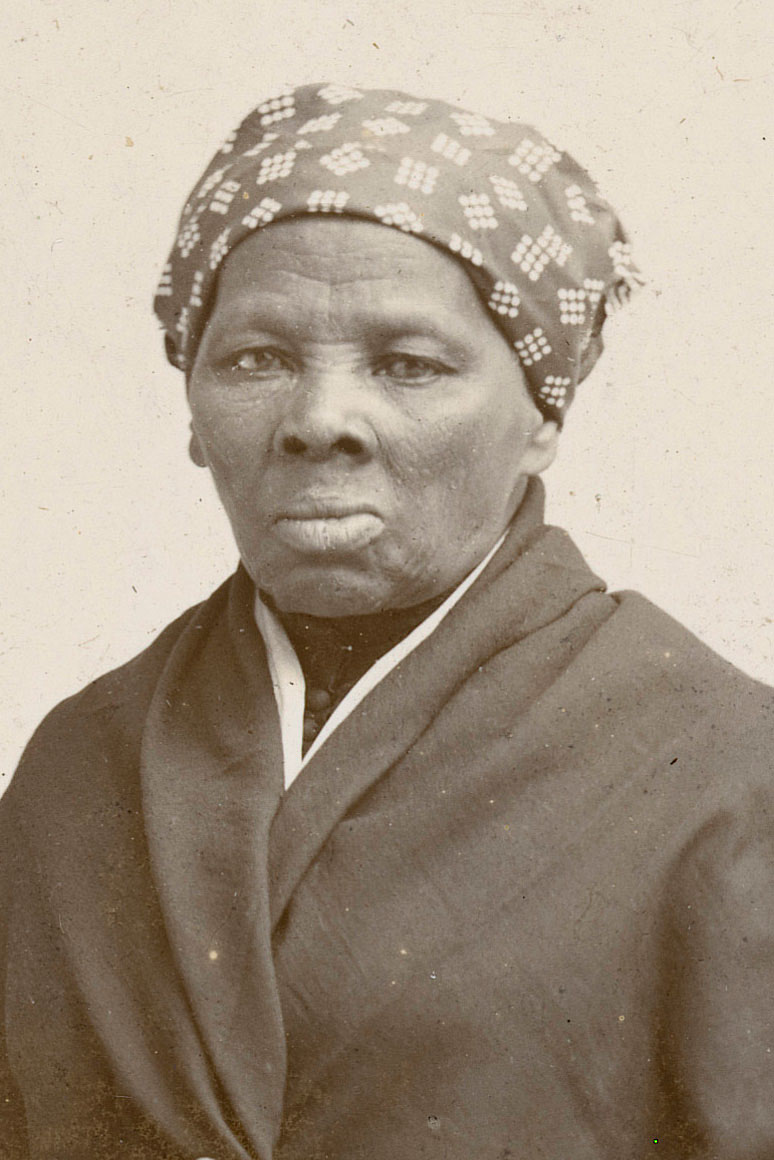
George Washington Carver (1864 – January 5, 1943) mastered chemistry, botany, mycology, and herbalism. He was born into slavery in 1864 in Missouri. He was an agriculturist, botanist, teacher, and inventor. He received his master’s degree from Iowa State University as the only black student. He looked to free African American farmers through soil regeneration, and he invented historic farming methods including crop rotation.
George Washington Carver was taught simple herbal applications from his owner’s wife, Susan, and loved working with plants and experimenting with soils and natural pesticides. He became known as a plant doctor. His work was to heal the land and his people, and his studies led him to learn that cotton depleted soils. He found nitrogen-fixing plants, like peanuts, soybeans, and sweet potatoes could restore soils and dramatically increase yields (Penniman, 2018).
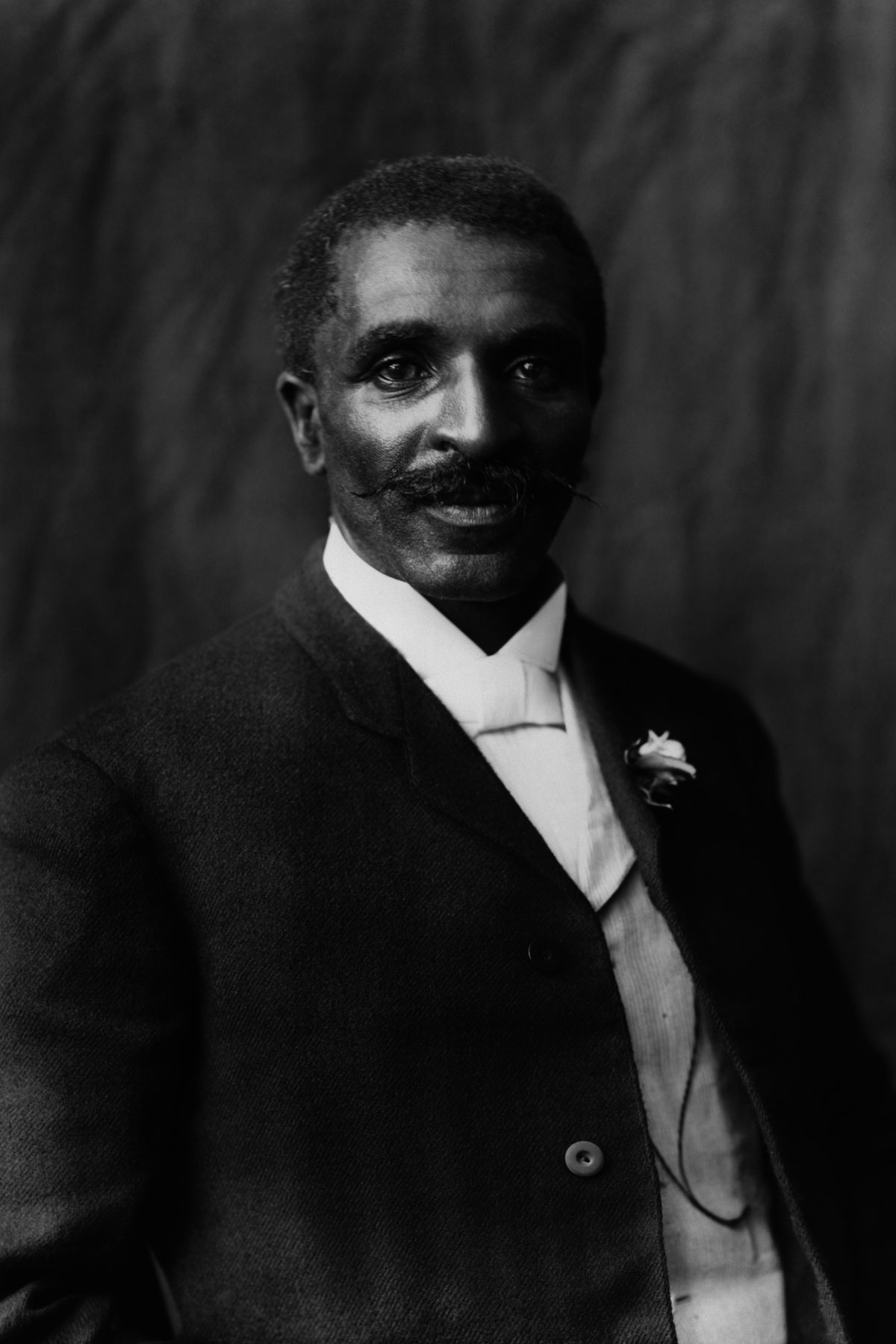
In Closing,
Western herbalism has work to do to repair and honor the ways in which Black herbalism has informed its practices and knowledge. This article only serves as the beginning and as an invitation to learn the history of Black herbalism, which has been foundational to herbalism in the United States. The work of reclamation involves listening to the voices, stories, and rich knowledge of Black herbalists and the Black community that have been handed down through generations. It is also to support the Black community as they do the work to celebrate their roots, and reclaim and repair their connection to the plants and the land.
Additional Resources
Black Herbalists and Teachers
Selima Harleston Lust of Iwilla Remedy
Abril Donea of the BIPOC Herbalism Community
Karen Rose of Sacred Vibes Apothecary
Sade Musa of Roots & Resistance
Leah Penniman of Soul Fire Farm (Watch her free webinar, “The Plants of Black Freedom” here)
Books
African American Herbalism: A Practical Guide to Healing Plants and Folk Traditions
African-American Slave Medicine: Herbal and Non-Herbal Treatments
Working Cures: Healing, Health and Power on Southern Slave Plantations
Working the Roots: Over 400 Years of Traditional African-American Healing
World of a Slave: Encyclopedia of the Material Life of Slaves in the United States
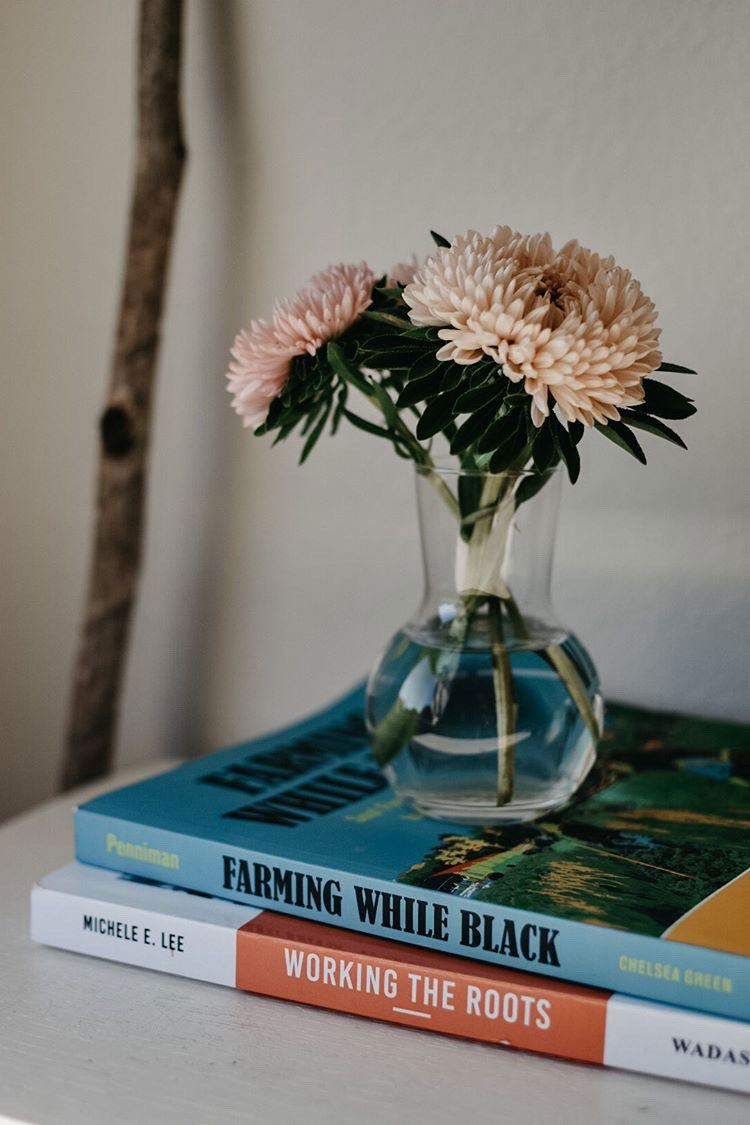
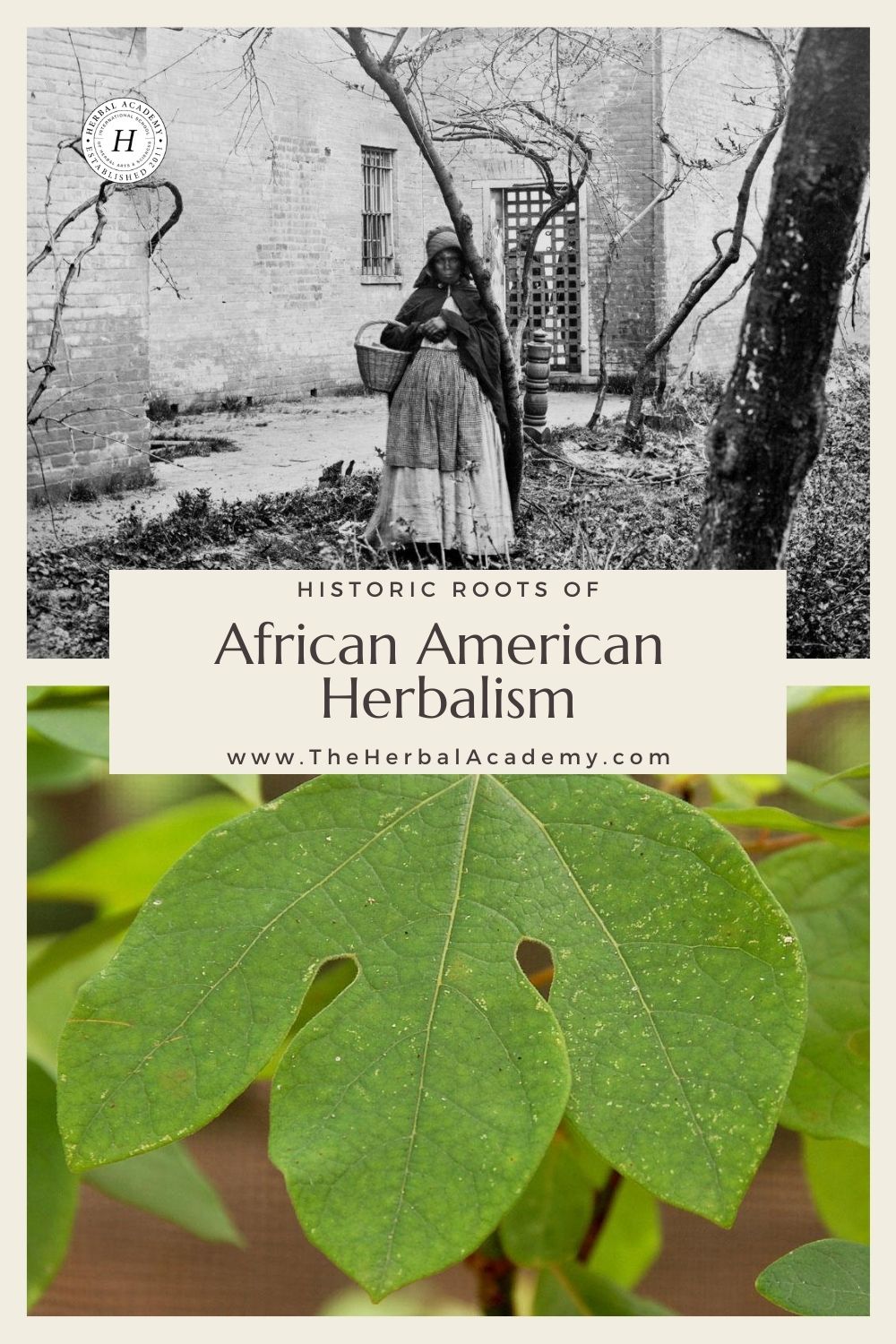
REFERENCES
Covey, H. (2008). African American slave medicine: Herbal and non-herbal treatments. Plymouth, UK: Lexington Books.
Dorsey, D. (2018, Feb 15). Reclaiming African herbalism as an act of resistance. YES! Magazine.
Fett, S. (2000). Working cures: Healing, health, and power on southern slave plantations. Chapel Hill, NC: The University of North Carolina Press.
Hamby, E.B. (2004). The roots of healing: Archaeological and historical investigations of African-American herbal medicine. PhD diss., University of Tennessee. Retrieved from https://trace.tennessee.edu/utk_graddiss/4543
Lee, M. (2017). Working the roots: Over 400 years of traditional African-American healing. Wadastick publisher.
Penniman, L. (2018). Farming while black. White River Junction, VT: Chelsea Green Publishing.
Penniman, L (2020). The plants of black freedom [webinar]. Retrieved from [https://www.americanherbalistsguild.com/sites/americanherbalistsguild.com/files/2019.12.17_american_herbalists_guild_-_the_plants_of_black_freedom2-converted.pdf]
Rice, K. & Katz-Hyman, M. (2010). World of a slave: Encyclopedia of the material life of slaves in the United States. Westport, CT: Greenwood Publishing Group.



